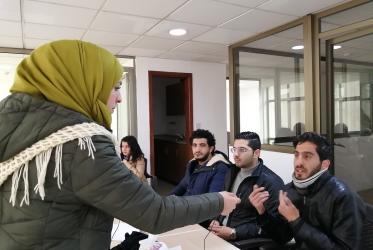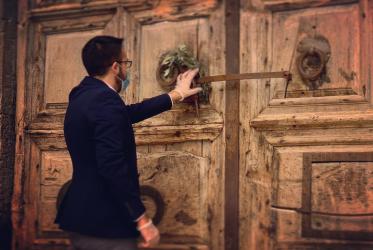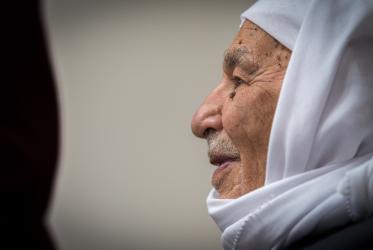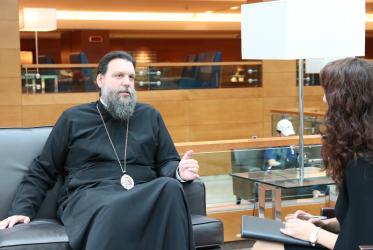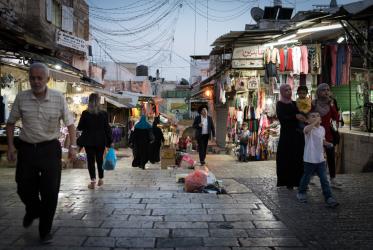Displaying 1 - 20 of 26
Promoting human dignity through art
06 September 2022
Are migrants seen and heard? Conference presses the question
19 October 2020
A faith-based, holistic approach to HIV and AIDS-care
13 March 2019
Paving the way for ecumenical studies, learning English in Bossey
24 September 2018
G7 must address famine
22 May 2017
In Lebanon, refugees face hardship - but find hope
16 March 2017
“There are no strangers here” – Saint Irenaeus a key to unity?
19 December 2016
Winners of WCC photo contest announced
09 May 2016


